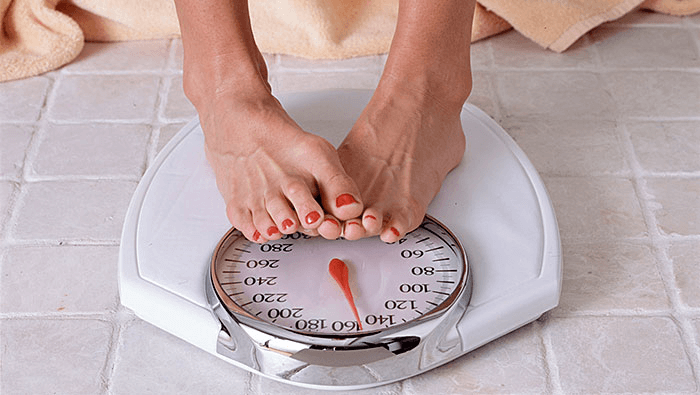Weight and Heart Disease in Women

If you were to walk into a room of women and ask if they considered themselves overweight, chances are a majority would be unsatisfied with their size. But when it comes to heart disease, we’re not talking about trying to fit into your skinny jeans.
When we say overweight or obese, it’s not about aesthetics. It’s about carrying excess weight to the point of straining your heart and raising your blood pressure, LDL (bad) cholesterol and triglyceride levels, and lowering your HDL (good) cholesterol, increasing your risk for diabetes.
Our bodies are made up of water, fat, protein, carbohydrates and vitamins and minerals. And if we have too much fat — especially if we’re carrying it primarily in the waist — the risk for heart disease issues goes up. That’s why it’s important to know your Body Mass Index (BMI), a numerical value of your weight in relation to your height.
Your BMI is a good indicator of whether you’re at a healthy or unhealthy weight. Here’s how it breaks down:
- Underweight: Less than 18.5
- Healthy weight: Less than 25
- Overweight: Between 25 and 29.9
- Obese: 30 or higher is considered obese.
To calculate your exact BMI value, multiply your weight in pounds by 703, divide by your height in inches, then divide again by the same number (height in inches).
The good news is, losing as few as 10 pounds can lower your heart disease risk.
The dreaded weight loss journey
It’s easy to start a diet. Sticking to it? Not so much. And even though we’ve all done it in the past, it’s never wise to follow a fad diet that drastically limits your food choices. You didn’t gain weight overnight, and you shouldn’t try to lose it all in the blink of an eye either. It simply isn’t healthy, or sustainable.
Here are few tips to help you get started:
- Decide how to handle temptation. When you’re offered calorie-rich foods, turn them down nicely, but firmly. And try to dine at places where there are healthy options.
- Be mindful of serving sizes. Eat slowly, take smaller portions and avoid seconds.
- Cook foods in ways that help remove fat. Try baking, boiling, broiling, grilling, roasting or stewing. Don’t fry foods in oil.
- Learn to decode nutrition labels. Avoid foods that are high in sugar, saturated fat, trans fat and calories.
- Drink lots of water. And try to limit alcohol and other high-calorie drinks.
Keeping extra weight off can be as challenging as losing it. Many things will tempt you to go back to your old habits. And it takes commitment to stick to your new, healthy lifestyle. Just remember that when you do, you will have greater self-control, feel stronger, have better eating habits and fewer mood swings, and be in better shape.
And remember: Eating smart doesn’t mean dieting. It means eating certain foods in smaller amounts and eating high-calorie and high-fat foods less often. Your heart will thank you.






